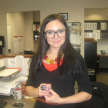What Can You and Shouldn’t Eat With Braces?
Braces may be recommended by your dentist or orthodontist to align or straighten your teeth or to aid with another dental issue, such as a gap, underbite, or overbite.

Braces may be recommended by your dentist or orthodontist to align or straighten your teeth or to aid with another dental issue, such as a gap, underbite, or overbite.
Braces can significantly improve your teeth, but it can take days or weeks for your teeth to adjust to the added pressure. During the first few days, you may experience some pain or irritation around your teeth and gums.
However, according to those who have had braces, the most difficult change may be giving up some of your favorite foods. Certain foods should be avoided when wearing braces because they can become stuck and cause damage.
Here are some of the greatest and worst things to consume with braces and what to do if your braces are damaged.
What can you eat when you first get braces?
Braces are not painful. However, your mouth may become sensitive in the days following your appointment. As a result, consuming meals with a rougher texture may cause pain.
Since you'll also need to learn how to chew differently, your orthodontist will probably advise you to eat only soft foods for the first few days.
After getting braces, you should eat the following foods:
- grains
- yogurt
- mashed potatoes
- pasta
- seafood
- soups
- soft cheeses
- oatmeal
- scrambled eggs
- moist desserts
- soft fruits
- cooked or soft vegetables
Also, you may eat any foods that are easy to chew.
Sensitivity will return after a few days or a week of wearing braces. You'll be able to resume your normal diet at that point.
What to avoid eating right after getting braces
Along with understanding what foods you can eat after having braces, you need also to know what foods to avoid.
Many foods are safe to eat while wearing braces. Some "safe" meals, on the other hand, may not be optimal just after receiving braces since they can irritate your mouth, producing too much pressure and sensitivity.
Right after getting braces, you should avoid eating:
- thick rolls or pieces of bread
-ice cream
- spicy foods
- thicker cuts of meats
- citrus foods
Once your teeth have adjusted to having braces, you will be able to eat these foods.
What to keep avoiding while you have braces
Because braces are prone to harm, you should avoid specific meals for as long as you have them.
Sticky and hard foods, for example, can damage the wires or bands or cause a bracket to dislodge from a tooth.
All the time while you have braces, you should avoid eating:
- hard crackers
- chewy candy
- ice
- chewing gum
- nuts
- chips
- hard candy
- popcorn
- bagels and other hard rolls
- pretzels
- pizza crust
- crunchy vegetables and fruits
Limit your intake of sugary meals and beverages when wearing braces. When sugar and saliva combine, they form a sticky film (plaque) that covers the teeth.
Brushing can help remove plaque, but it gets more difficult with braces. If you are unable to remove this sticky coating, you run the danger of tooth decay.
While the odd sweet treat is acceptable, restrict yourself to a few sugary foods and beverages per week.
What to do if wires or bands on your braces come loose
You will have periodic sessions with your orthodontist to modify your braces while wearing braces. Other difficulties, such as a loose or damaged wire or band, can arise between frequent adjustments.
This may occur if you will eat sticky or crunchy foods, pick at your braces, or get an injury to your mouth.
If you have any problems with your braces, contact your orthodontist straight away. Ignoring the damage or postponing repairs may lengthen your treatment time.
Pulling or bending a broken wire or bracket is not recommended. You could do even more harm. Instead, cover the sharp edge with a damp cloth or orthodontic wax until you can see a dentist or orthodontist.
Maintaining dental health with braces
One approach to avoid harm is to maintain healthy dental hygiene while wearing braces. Brush your teeth at least three times per day, preferably after each meal, with a soft-bristled toothbrush.
Pay special attention to the area around your braces and remove any food traces. Clean between your teeth with floss and a floss threader to remove food particles from between braces and wires.
It is critical to see your orthodontist and dentist regularly for cleanings and checkups. Dental cleanings are necessary to remove plaque accumulation, which causes cavities and gum disease.
Orthodontist visits guarantee that your braces are correctly fitted.
Your dentist may also advise you to use a fluoride mouthwash to help strengthen your teeth and reduce your risk of tooth decay.
Learning alternative chewing techniques can also help to keep braces in good condition. It may be easier to chew food with your back teeth, which are stronger, rather than your front teeth. This might protect your braces from injury when eating bigger pieces of bread or meat.
Conclusion
Braces can help you improve your teeth. However, if you consume the wrong foods and don't practice basic oral care, you risk harming your braces and teeth.
What foods to avoid will be discussed with your dentist or orthodontist. Please do not hesitate to ask any queries. Damage to your braces may lengthen your therapy, requiring you to wear them for an extended time.
About the Creator
Amelia Grant
I am journalist, and blogger.






Comments
There are no comments for this story
Be the first to respond and start the conversation.